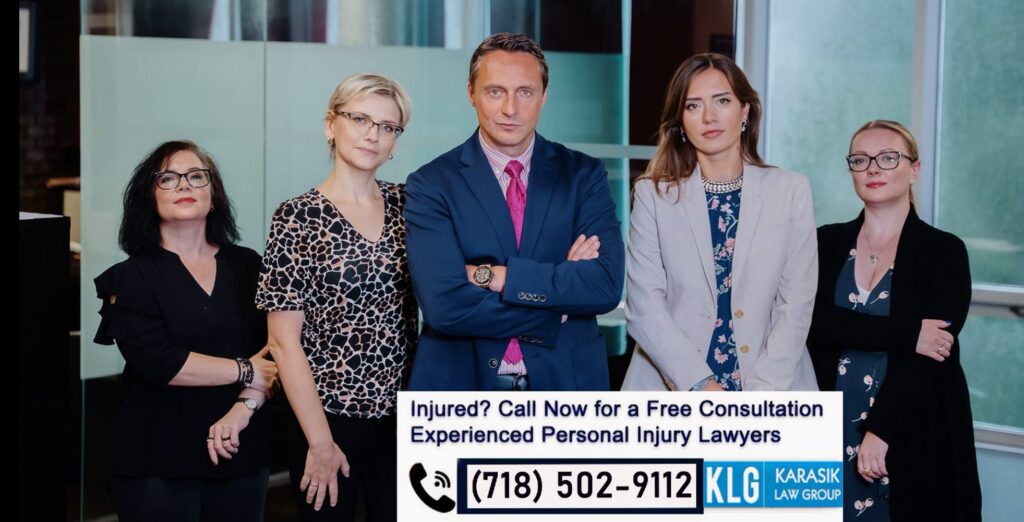
Medical malpractice claims are a serious concern in New York City, where the bustling healthcare system sees a myriad of cases each day. Understanding the most prevalent types of claims can help patients protect themselves and seek appropriate legal recourse when necessary.
According to recent studies, medical errors rank as the third leading cause of death in the United States. This sobering statistic underscores the importance of addressing medical malpractice and ensuring patient safety.
Bariatric Surgery and Weight Loss Surgery
In recent years, bariatric surgery and weight loss surgery have gained popularity as solutions for obesity and related health conditions. However, these procedures are not without risks, and instances of malpractice can occur. Patients who have experienced complications or negligence during bariatric surgery may be entitled to seek legal recourse.
Failure to Treat: A Breach of Standards
One of the most common medical malpractice claims is failure to treat. This occurs when a medical caregiver neglects to provide the necessary standard of care expected when treating patients. Failure to treat can lead to worsening conditions, unnecessary complications, and even death.
Common Types of Medical Malpractice Claims in NYC Include:
- Birth Injuries: These occur during childbirth due to medical negligence, potentially causing lifelong disabilities or complications for the infant.
- Surgical Errors: Mistakes made during surgical procedures can lead to severe injuries, infections, or even fatalities.
- Pharmaceutical Drug Errors: Administering incorrect medications or dosages can result in adverse reactions or worsen a patient’s condition.
- Medical Errors: General medical errors encompass a broad range of mistakes, from misdiagnoses to documentation errors, with potentially serious consequences for patients.
- Failure to Treat: Neglecting to provide appropriate medical care or follow-up can exacerbate existing conditions and lead to further harm.
- Anesthesia Complications: Errors in administering anesthesia can result in anesthesia awareness, allergic reactions, or even death.
- Delayed Diagnosis or Failure to Diagnose: Failing to diagnose a medical condition in a timely manner can delay necessary treatment and worsen outcomes for patients.
- Hospital Infections: Inadequate infection control measures can lead to hospital-acquired infections, posing risks to patient safety.
- Negligence and Duty of Care: Healthcare providers have a duty to provide a certain standard of care to their patients, and negligence in meeting this duty can result in malpractice claims.
- Emergency Room Errors: Mistakes made in emergency room settings can have serious consequences due to the urgent nature of patients’ conditions.
- Incorrect Incisions: Surgical errors such as making incorrect incisions can result in complications and prolonged recovery times.
- Performing Unnecessary Surgeries: Subjecting patients to unnecessary surgical procedures can result in physical harm and emotional distress.
- Issues with Informed Consent: Failing to properly inform patients of the risks and benefits of medical procedures can lead to legal issues surrounding informed consent.
- Leaving Instruments Inside the Patient: Surgical tools or sponges left inside a patient’s body post-surgery can cause serious complications.
- Missed Laboratory Results: Failing to follow up on abnormal laboratory findings can delay diagnosis and treatment.
- Incomplete Patient History: Inaccurate or incomplete patient histories can lead to misdiagnosis or improper treatment.
- Amputation Injuries: Mistakes made during surgical amputation procedures can result in unnecessary loss of limbs or extremities.
- Bedsores: Failure to provide adequate patient care, especially for bedridden or immobile patients, can lead to painful and potentially life-threatening bedsores.
- Botched Treatment: Errors in administering medical treatments or therapies can result in adverse effects or worsening of the patient’s condition.
- Care Home Negligence: Inadequate care in nursing homes or long-term care facilities can lead to neglect, abuse, and substandard living conditions for residents.
- Cosmetic Procedures: Errors during cosmetic surgeries or procedures, such as facelifts, breast augmentation, or liposuction, can result in disfigurement, asymmetry, nerve damage, or other complications.
- Endoscopic Procedures: Errors during endoscopic procedures, such as colonoscopies or gastroscopies, can include perforation of the bowel or other organs, excessive bleeding, or failure to detect and remove abnormalities or tumors.
- Radiological Procedures: Misinterpretation of imaging studies, such as X-rays, CT scans, or MRIs, can lead to missed diagnoses or incorrect diagnoses, delaying appropriate treatment or exposing patients to unnecessary procedures.
- Reconstructive Surgery: Errors in reconstructive surgeries, such as those performed after trauma or cancer treatment, can result in functional impairment, aesthetic dissatisfaction, or the need for additional corrective procedures.
These examples illustrate the diverse range of medical procedures where malpractice can occur. Patients who believe they have been harmed by medical negligence in any of these areas should seek legal advice from a qualified medical malpractice attorney to understand their rights and options for pursuing compensation.

How Much You Can Earn from Medical Malpractice Cases
In terms of the actual amount, New York doesn’t place a limit on the monetary value of damages. Thus, very high or low damage awards are possible depending on the strength of the case. In any case, those with a New York medical malpractice attorney representing them will have a better chance of collecting high damages.
Why Choose Top Brooklyn Medical Malpractice Attorney Alexander Karasik, ESQ., for Your Medical Malpractice Case?

When it comes to seeking justice for medical malpractice, experience and results matter. Alexander Karasik, of Karasik Law Group, has established himself as one of the top medical malpractice lawyers in Brooklyn, NY, with a track record of successful outcomes in recent cases.
Medical Malpractice Cases: Urgent Help 24/7 and Assistance Online: Free Consultation
In times of distress and uncertainty, swift action is often necessary. If you or a loved one have experienced a Medical Malpractice incident in NYC, urgent help 24/7 and assistance are just a phone call away. Call us at (718) 502-9112 for immediate assistance or visit our website and utilize the convenient contact form to reach us at any time of the day or night.






